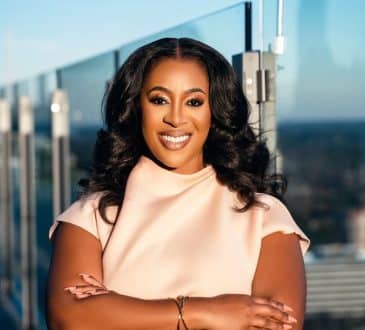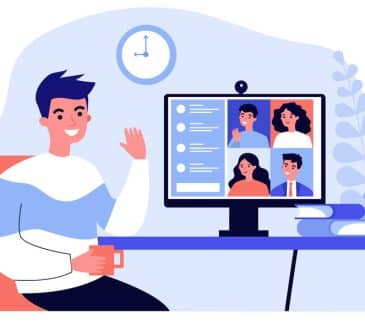Regrets, I’ve Had a Few. ’Tis the Season for Gratitude.

We all have regrets. Things we could’ve done differently. Things we should have not done at all. However, some of us free ourselves from our regrets by turning them into gratitude. Compare your regrets to these whoppers:
- Atari could’ve bought a 33% ownership stake of Apple for $50K
- IBM was offered to buy MS-DOS outright from Microsoft, but instead they chose to license it
- Western Union Telegraph passed on the patent rights to Alexander Graham Bell’s invention of the telephone
- Legend has it that Priam, the King of Troy, opened his gates to a gift of a large horse from Sparta
- Decca Records chose not to offer a contract to The Beatles because they believed guitar music was on its way out
We all make mistakes. As regrettable as these decisions are, they weren’t catastrophic. Atari continued to dominate the gaming market. IBM stumbled in the 1980’s, but recovered in the 90’s. Western Union continued to be the communications leader of its day. The Trojan Horse is credited with putting an end to a futile war. George Harrison told the Decca executive who passed on his band to sign another rock group from London called The Rolling Stones.
Regrets, though, linger. Some longer than others while others sting a bit more. The thing about regrets is they hold us back. They create points of friction because on some level we blame ourselves for bad outcomes where we experience a sense of loss or sorrow for might have been. Instead of addressing regrets, some people ruminate and obsess about them forming the foundation for clinical depression.
Instead of looking back on missed opportunities through disappointment and frustration, can we turn our regrets into a source of gratitude? Do regrets hold hidden value when we don’t pathologize them?
Although regret research is in its early stages, notable findings have already been found. Three theories show the intensity of our regrets is more important than the frequency of our regrets. The most known theory — The Temporal Theory of Regret (1, 2) — reveals whether regrets relate to action or inaction. This theory proves actions produce greater regret intensity in the short term (the dumb things we did) whereas inactions generate more regret intensity in the long term (the smart things we didn’t do). Atari, IBM, Western Union and Decca are examples of inaction regrets. The Trojan Horse is an action regret.
The Decision Justification Theory (3) illustrates how processes are sacrificed at the alter of outcomes. We justify favorable outcomes even when decision making processes have been compromised. However, we have greater regret over decisions when outcomes are negative. Luck, rather than skill, is reinforced as a result. When the New England Patriots drafted Tom Brady in the 6th round of the 2000 NFL draft with the 199th pick, nobody expected him to become a franchise quarterback, yet alone the greatest player in NFL history. However, fans and team executives alike regret their 1st round draft choices of Ryan Leaf, Marcus Russell and Tony Mandarich more intensely. These busts and the success of Tom Brady were based on the same faulty decision making processes, but the intensity of regret is significantly different. There was no regret intensity when the Tennessee Titans cut their 199th draft choice in the 6th round of the 2018 NFL draft. A quarterback named Luke Falk — exactly like Tom Brady.
The Belonging Theory of Regret (4) illustrates the social context of a regrettable decision. Regrets regarding our social belonging are more intense than those in non-social domains. For example, regrets we have about our romantic and family lives are more intense than our work and education. Social regrets represent a threat to a basic need we have to belong to a group or connect with someone. Early in my career, I turned down a position at Penn State University. I don’t believe that if I had accepted the job it would’ve altered my life in any significant manner. However, I did turn down a job at Cornell University to accept a position at the University of Virginia, which is where I met my wife. If I had chosen Cornell over UVa then my life would’ve changed significantly — for the worse I am sure. Research shows 44%of women experience romantic regrets, whereas only 19% men do (5).
Regret is not a finite concept. Regret lies at one end of a continuum and gratitude lies at the other. Reframing a regret requires uncovering the value it holds. Only then can corrective action be taken. We polarize on the regret end of the continuum when we’re unable to uncover or admit the value of a regrettable decision. Reframing provides an opportunity to learn about yourself and the situation enabling regrets to move toward gratitude. Regrets reveal our values, vulnerabilities and triggers. They also tell us something about our decision-making process and why we choose certain people as partners both professionally and personally. We move from regret toward gratitude when we make sense of the world, gain insight and achieve social harmony. However, this transformation doesn’t happen naturally. Intentional thought and action needs to follow regret or we are destined to linger in the pathology of regret preventing us to change virtually guaranteeing we’ll make the same mistake again. And again. And again.
My grandfather died from alcoholism when I was about 11 years old. My father brought our entire family to his deathbed and his body was emaciated from decades of alcohol abuse— he weighed only about 65 pounds. My grandfather married and divorced several times, wrecking families along the way. When my father was a boy, my grandmother would send him and my uncle to look for my grandfather when he didn’t come home from a weekend binge. My grandfather wasn’t a mean drunk — he was a fun drunk. He’d close his butcher shop Friday afternoons and spend his weekends singing and dancing in the bars along the south shore of Long Island. Regardless, it still had the same effect on his family. They were destroyed. In the hospital room where my grandfather would soon die, my father asked him pointedly, “Was it worth it?” My grandfather responded, “Bill, I had a ball. I wouldn’t change a thing.” My grandfather never looked for or admitted there was value in regrets. He kept doubling down, making the same mistakes again and again, disrupting lives along the way.
Whereas my grandfather failed to address his regrets, my father faced them head-on. After explaining what it was like to grow up in such an unstable environment, as a teenager I asked him how he recovered from that experience. And that’s when he told me he was grateful. “Grateful?”, I asked him, “How could anyone be grateful to live under those circumstances?” My father sat me down and explained a few things. First, it wasn’t his choice to be his father’s son. Therefore, how could he be held responsible? However, it was his responsibility to choose how he wanted to live his life and determine what kind of person he wanted to be. My father was grateful for the lessons he learned from my grandfather. He learned who he could trust, who he could rely upon. When in doubt, he did the opposite of what his father would’ve done. Negative role models are just as influential as positive role models. My father built a successful corporate career before launching his own business allowing him to retire comfortably all while being married to the same woman for 68 years — the personification of a life well-lived. I am a direct beneficiary of my father’s willingness to break the cycle of regret.
Moving from regret to gratitude occurs when we become aware we’ve benefitted from a person or an experience, no matter how harmful and destructive. Regret deprives us from learning whereas gratitude paves the way toward growth. We appreciate simple pleasures because we recognize how other people contribute to our well-being by expressing appreciation for the decisions that form our regrets.
Gratitude facilitates our evolutionary need to cooperate with other people. Being positively related with authenticity and negatively related to self-alienation, gratitude contributes to our overall well-being. Our relationships strengthen because gratitude promotes conflict resolution by fostering reciprocal behavior in others.
Kindness and gratitude work hand-in-hand where both the giver and receiver benefit through pro-social behaviors such as empathy, forgiveness and helpfulness resulting in stress and anxiety reduction. In addition to mental health benefits, gratitude also improves sleep, lowers blood pressure, expedites medical procedure recovery rates, builds exercise adherence, reinforces addiction recovery and strengthens our immune system. From a business perspective, gratitude is positively correlated with job satisfaction and social responsibility such as ethics and philanthropy while being negatively correlated with burnout, exhaustion and depersonalization.
Human behavior patterns are simple — decisions followed by actions. Everyone makes poor decisions and everyone makes mistakes, but regrets are compounded by making further regrettable decisions demonstrating an inexplicable inability to learn. Two additional theories contribute to regret intensity. First, the Opportunity Principle (6) shows how regret intensity increases when we ignore opportunities to correct regrettable decisions, whether it’s for our actions or inactions. Second, the Lost Opportunity Principle (7) reveals we experience our most intense regrets when we realize negative outcomes could have been prevented, but can no longer can be corrected.
This holiday season, give the gift of gratitude. Think of your regrettable decisions this past year and the people who were involved. Begin by expressing your regret. Then explain how you would act or what decision you would make if presented with a similar situation in the future. Describe what you’ve learned from the experience and how your behavior has changed by being more patient, persistence and resilient. Finally, explain why you’re grateful this experience provided an opportunity to learn and grow. Cite specific examples of how you’ve replaced toxic behavior with compassion and empathy by taking more time to fully understand situations. Share it with people who wronged you and who were impacted by your regrettable decisions. It could be your most valuable gift this year.
References
- Gilovich, T., and Medvec, V. H. (1994). The temporal pattern to the experience of regret. J. Pers. Soc. Psychol. 67, 357–365. doi: 10.1037/0022-3514.67.3.357
- Gilovich, T., and Medvec, V. H. (1995). The experience of regret: what, when, and why. Psychol. Rev. 102, 379–395. doi: 10.1037/0033-295X.102.2.379
- Connolly, T., and Zeelenberg, M. (2002). Regret in decision making. Curr. Dir. Psychol. Sci. 11, 212–216. doi: 10.1111/1467-8721.00203
- Morrison, M., Epstude, K., and Roese, N. J. (2012). Life regrets and the need to belong. Soc. Psychol. Pers. Sci. 3, 675–681. doi: 10.1177/19485506114 35137
- Greenberg, Melanie (2016). The Psychology of Regret. Psychology Today
- Roese, N. J., and Summerville, A. (2005). What we regret most. and why. Pers. Soc. Psychol. Bull. 31, 1273–1285. doi: 10.1177/0146167205274693
- Beike, D. R., Markman, K. D., and Karadogan, F. (2009). What we regret most are lost opportunities: a theory of regret intensity. Pers. Soc. Psychol. Bull. 35, 385–397. doi: 10.1177/0146167208328329
Written by Stephen Long, Ph.D
Add CEOWORLD magazine to your Google News feed.
Follow CEOWORLD magazine headlines on: Google News, LinkedIn, Twitter, and Facebook.
This report/news/ranking/statistics has been prepared only for general guidance on matters of interest and does not constitute professional advice. You should not act upon the information contained in this publication without obtaining specific professional advice. No representation or warranty (express or implied) is given as to the accuracy or completeness of the information contained in this publication, and, to the extent permitted by law, CEOWORLD magazine does not accept or assume any liability, responsibility or duty of care for any consequences of you or anyone else acting, or refraining to act, in reliance on the information contained in this publication or for any decision based on it.
Copyright 2024 The CEOWORLD magazine. All rights reserved. This material (and any extract from it) must not be copied, redistributed or placed on any website, without CEOWORLD magazine' prior written consent. For media queries, please contact: info@ceoworld.biz
SUBSCRIBE NEWSLETTER








